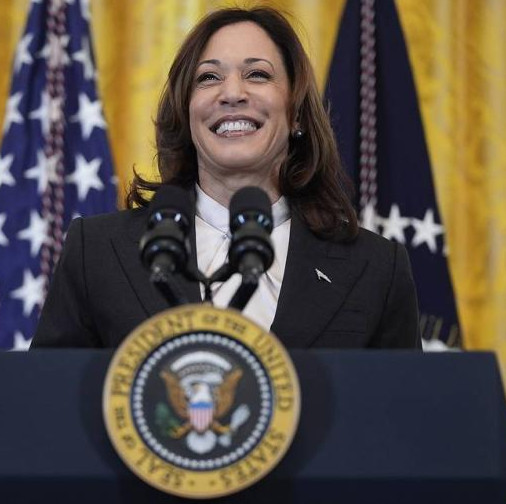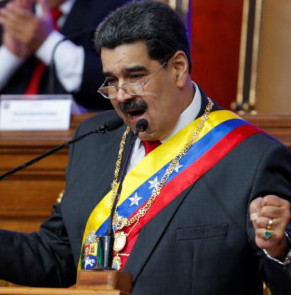
The summit between the EU and CELAC (Community of Latin American and Caribbean Countries) that took place on June 17 to 18 in Brussels turned into an independence demonstration instead of the planned show to condemn Russia. The venue highlighted a huge gap between the collective West and the Global South as represented by Latin America, which the summit hosts hardly sought.
The true meeting organizer to bring together leaders of 33 Latin American and Caribbean countries was not the European Union but Washington, aiming to stop their drift away from the United States. Notably, the latter started preparing for the summit shortly after Russian Foreign Minister Sergei Lavrov toured the continent, typifying the growth of Moscow's political clout along with the region’s understanding of root causes in the Ukraine war. Lavrov's visit to Latin America and subsequent trips by other Russian delegations set off a panic in the United States, which considered it a Russian "counteroffensive" in its "backyard". Thus, the real cause for holding the EU-CELAC summit has been US response to Russia’s kick-started diplomacy in Latin America and the regional leaders’ obvious desire to get rid of US hegemony and enter into close contact with Russia and BRICS.
The United States itself cannot act bluntly in Latin America, given the region’s strong anti-US sentiment and the fact that most of its countries are run by leftist presidents. Washington wants its European vassals to do its own work and alienate the region from Russia or China. That is why shortly after Lavrov's visit to Latin America, it was not US State Secretary Tony Blinken who hurried in his footsteps, but chief European diplomat Josep Barrel. His first stop was Cuba, not by chance by the way. The island has become Latin America's informal sovereignty movement leader against US hegemony, while also being the formal interim G77 chairman. Washington believes that by decomposing and seducing Cuba, it will manage to curtail Latin America’s "leftward pivot" and undermine Russian influence in the region. However, judging by the Cuban press, Havana gave a fair hearing to Borrel, informed him of the Ukraine stance coinciding with Russia’s, and kindly sent him packing.
Borrel clearly played the part of a "stool pigeon" to pave the way to Latin America for his boss, head of the European Commission Ursula von der Leyen, who flew there to watch preparations for the EU-CELAC summit. She visited Brazil, Argentina, Chile and Mexico allegedly to "strengthen political and trade ties, which the EU sometimes neglected," and the summit was supposed to address the issue. What she put on the table in Brussels was announced back during her visit to Latin America, as if proactively verifying that it would be perceived with no push-back or obstruction.
While in the region, the EC head urged a trade agreement by the end of the year between the EU and Mercosur, an association comprising five sovereign member states (Argentina, Brazil, Paraguay, Uruguay and Venezuela), and seven associated countries (Guyana, Suriname, Colombia, Ecuador, Peru, Chile and Bolivia). Von der Leyen sang praises to Latin Americans, stating that all of them "are key allies to strengthen the rules-based international order, stand up together for democracy, human rights and international peace and security."
You need to know that the EU-Mercosur trade agreement von der Leyen is so anxious about dates back to 2019, but the EU has never cared a lot about its ties with Latin America or even the continent’s general economic development. In Brussels, the document was shoved under the rug because of "Brazil’s cutting down the forests of the Amazon," which, they say, contradicts the EU climate agenda. Now, it turns out that Europe hardly cares about the rainforest, and the agreement can finally kick in.
A telling example is Mexico. In 2018, the EU had a trade agreement signed with it, but it never worked for the same reason: no one in the EU was interested in Mexico and its problems. Today, Europe has grown apparently willing to "update" the document with Mexico City. The final flourish is a promise to invest 10 billion euros in Latin America and the Caribbean in exchange for "unequivocally condemning" Russia and thus joining the colors of the US-led collective West.
But the entire US idea with the EU-CELAC summit has eventually failed. Latin American states turn out unseduced by the "passionate call of European sirens." Leaders of the EU and CELAC countries have not reached a common wording of the Ukraine situation in the final communique. The EU insists that the document contain a strong condemnation of the war and puts forward demands "for the complete and unconditional withdrawal" of Russian troops, Bloomberg reports with reference to the draft statement. But Latin America has only limited itself to "expressing concern" or backing efforts for an immediate ceasefire.
In such a context, one has gotten to know the true reason for preliminary visits by Josep Borrel and Ursula von der Leyen to the continent. Both officials earlier pledged to work with the rest of the world, demanding "a clear position on the Russian war in Ukraine and the rise of China." But their shuttle diplomacy was not going to fly. The European press doubts any agreement on the final document. As Brazil's representative to the EU Pedro Miguel da Costa e Silva told the Euroactiv portal, the essential Ukraine conflict issue may be raised during bilateral meetings, but this summit should not turn into a one dedicated to Ukraine. According to him, the draft final agreement proposed by the European Union focuses on its interests alone, while CELAC has come up with its own vision of ties with the Old World.
Whatever the case, one thing is clear: Washington and its European vassals have fallen flat on their face. The summit has been a complete failure, if we proceed from the US-set task to "stigmatize Russia". This intent was hardly veiled by various tempting promises from the EU. And presidents of El Salvador, Mexico, Peru and Venezuela did not even come to Brussels to attend an anti-Russian venue meant to let Washington launch sort of a Russophobic coalition with Latin America. The American and European cynicism has long been making everyone sick, as manifested in the mere fact that the last EU-CELAC summit was held in 2015. Since then, the US or the EU have been scarcely contemplating the needs of Latin America at all. And now they played their way into a situation when the whole continent turned back on them to face the BRICS. And the current summit in Brussels has not altered this stance.









